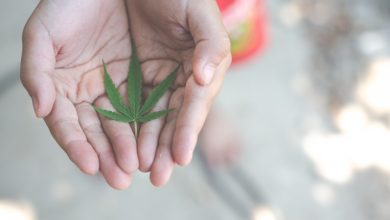
FSA Publish List of Validated CBD Brands that can be sold in the UK
Today was to be a monumental day for the CBD industry in the UK, with regulations coming into effect via the Food Standards Agency (FSA) publishing their list of legal CBD products that can be sold on the UK market. Having taken nearly two years to complete their research and approval processes on each company selling consumable CBD goods in the UK, companies will finally be able to see where their application stands.
The FSA has faced huge backlash around the move, with companies finding the paperwork, cost and timeframe for approval detrimental to their ability to operate successfully. However, as far as the FSA is concerned, CBD is a novel food and therefore must be authorized before products are put on the market, just like chia seeds before them. CBD is classified as a novel food, in line with FSA, as there is no history of consumption before May 1997.
The list has been in the making for two year, with every applicant needing to give extremely detailed information about each of their products and every stage of their supply chain needing to be examined. The deadline was moved to accommodate the workload involved due to the number of applications requiring investigation.
However, the list has left a lot of CBD companies none the wiser, with only 3 new companies added to the validated list and some 3,000+ products published as ‘awaiting evidence’ the industry is looking at, potentially, months before finding out the outcome of their products.
As it stands you can view the list of CBD products validated for the UK shelves here.
What does this mean for the CBD brands that gain approval?
With approximately 3,500 product applications listed, products that have gained validation, or are still awaiting approval, will face a less crowded and competitive environment, resulting in more trust within the CBD market due to stronger regulations.
The FSA had previously hoped that the industry would supply relevant product information voluntarily, but this was not the case. In order to bring the current market into compliance, they made it mandatory for companies to retrospectively submit applications for their products if they had been placed on sale prior to 13th of February 2022. They recommended that all application products be allowed to remain on the shelves until a decision was made.
What will happen to the brands that do not gain approval?
The FSA will have three distinctive outcomes for CBD manufacturers from today;
- Validated: These products have passed inspection and are legally allowed to be sold on the UK market based on the FSA novel foods requirements.
- Awaiting Evidence: Can remain on the market in England and Wales, pending further evidence for validation.
- Removed: These products have not met the criteria for CBD as a novel food, should be removed from the market effectively immediately and are not legally approved to be sold in England and Wales.
It is important to note that validation does not mean these products have been authorized, validated companies will still need to adhere to CoA testing and evidence that their products comply with all CBD regulations.
It will be up to local authorities to enforce this legislation with the FSA site stating, “We expect companies which have not applied for authorisation or those rejected from the process to withdraw their products from the market voluntarily. If this does not happen, local authorities can use the list to inform their enforcement decisions”.
Validated Applications To Date
Prior to today, only three applicants have been validated. These successful candidates, Pureis, CBDex and 4MP, have all actively spoken out about how complex the process has been and how much expense has gone into gaining validation. Pureis have carried out additional clinical studies “over the course of 18 months and an excess of £1.5 million investment”.
Looking at the cost and time needed to successfully complete a retrospective Novel Food Application, we will most likely see smaller CBD companies shutting their doors due to an inability to meet regulation standards and a lack of resources for them to do so.
Benefitting the Industry
Ultimately the FSA’s certification is a step in the right direction. With companies that are serious about the industry crying out for more transparency and clearer regulations for years, the Novel Foods Act will only help the reputation of the CBD industry in England and Wales.
With approximately 8 million adults a year using CBD products, this certification is certain to give the industry a much needed boost. Providing consumers with a level of trust that is currently lacking in this space, as well as the ability to attract existing industries and investors to move into the CBD space.
In addition to this CBD companies may potentially see restrictions to advertising lifted as the industry is viewed in a more legitimate manner, providing new avenues for brands to reach potential buyers and consumers.
With the list now publicly visible, it will be important to see how brand validation will progress over the coming months and how ‘removed’ products are enforced in retail areas.




